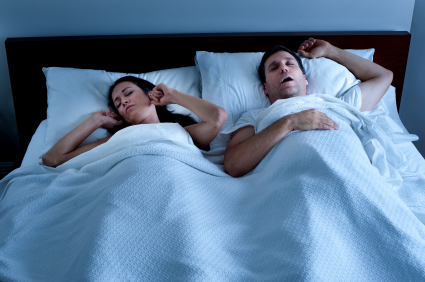Snoring and Sleep Apnea
 Once in a while, you may encounter an individual who snores heavily when they fall asleep. The American Sleep Apnea Association estimates that about 90 million Americans snore at night. Luckily, not all of these individuals suffer from sleep apnea. At Sleep Apnea Solutions of Cincinnati, we help our patients sleep better at night by managing both snoring and sleep apnea. Once in a while, you may encounter an individual who snores heavily when they fall asleep. The American Sleep Apnea Association estimates that about 90 million Americans snore at night. Luckily, not all of these individuals suffer from sleep apnea. At Sleep Apnea Solutions of Cincinnati, we help our patients sleep better at night by managing both snoring and sleep apnea. What Is Simple Snoring?The meaning of simple snoring refers to the sound a person produces from the upper aerodigestive tract. However, it goes by simple snoring because other pathologies do not accompany it. Still, simple snoring is caused by the partial blocking of the upper airway when the soft tissues at the back of the throat naturally relax and drop down during sleep. The result is a reduced amount of air that goes to the lungs through the air passageway, making breathing a little laborious. The sound that we hear and refer to as snoring results from air rattling the tissues, leaving a distinctive sound in its wake. Snoring is also possible when you have nasal congestion or inflammation in the upper airways. If you consume alcohol, tobacco, or drugs, you might also snore in your sleep. Limited literature also associates snoring with a higher body mass index. You can tell when you are simply snoring by a few signs, including a dry mouth or irritated throat tissues. However, there are no adverse effects associated with simple snoring. Obstructive Sleep ApneaObstructive sleep apnea goes beyond mere snoring. It is a disorder linked to sleep that leads to a total blockage of the airways during rest. This blockage halts breathing for periods of 20 to 30 seconds repeatedly. This cycle happens throughout the night, causing individuals with this condition to experience nearly a hundred episodes of breathing cessation. This condition differs significantly from ordinary snoring as it brings additional health risks, heightening the likelihood of developing conditions such as hypertension, diabetes, stroke, and various headache disorders. Often, those affected by sleep apnea remain unaware of their sleep-related disorder. What Makes Sleep Apnea Different from Snoring?There is little knowledge of what differentiates sleep apnea from simple snoring. However, the following tips can help differentiate between the two. Noisy SleepingIf you are a noisy sleeper, you should get concerned and confirm with our practice that you do not have sleep apnea. If your snoring gets louder throughout the night or if your partner notices pauses in your breathing, these could be signs of sleep apnea. Increased RestlessnessYou may be tossing and turning several times throughout the night or sleep, kick, jerk, and wake up with your sheets in a twisted mess. If you have observed this, you could have sleep apnea. Daytime SleepinessYou may have noticed that you are always sleepy and tired during the day. Sleep apnea allows you to sleep throughout the night, but the series of interruptions throughout the night will make you feel increasingly tired during the day. At Sleep Apnea Solutions of Cincinnati, we fit snore guards and night mouth guards to keep your airways open throughout the night for you to enjoy quality sleep. You do not have to worry about managing your condition, whether snoring or sleep apnea. Reach out to us now at (513) 991-2520 and let us help you sleep better. |